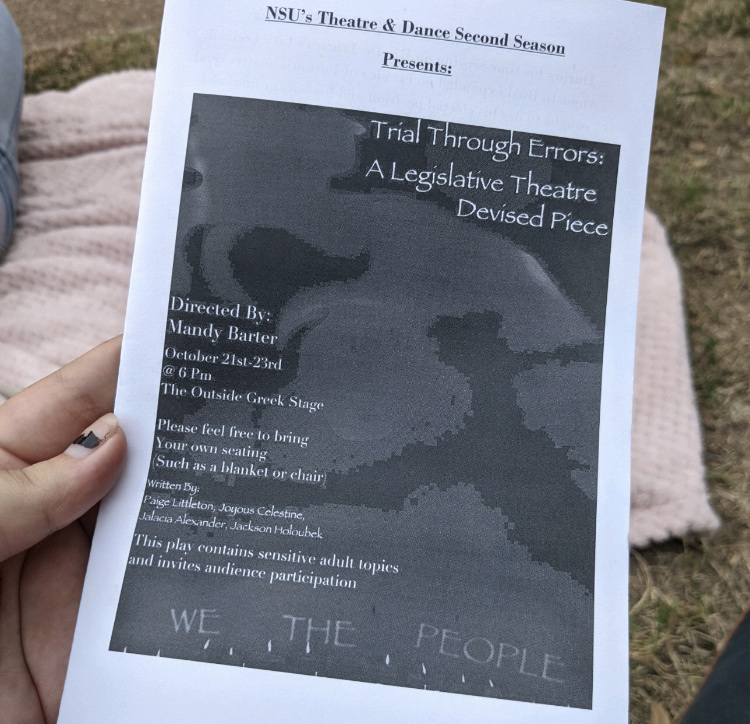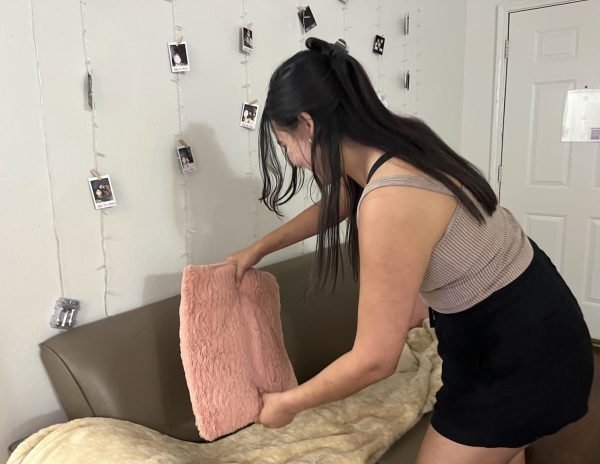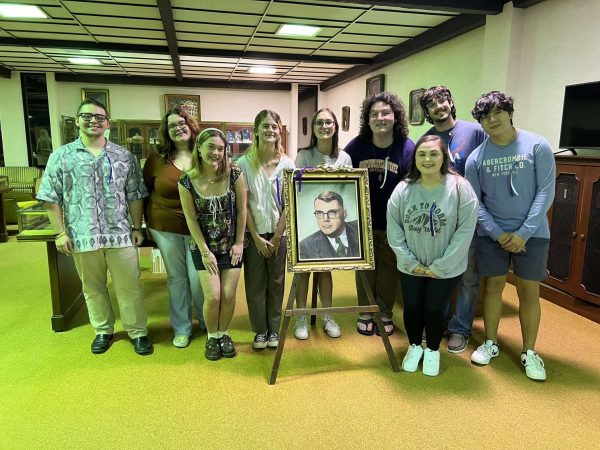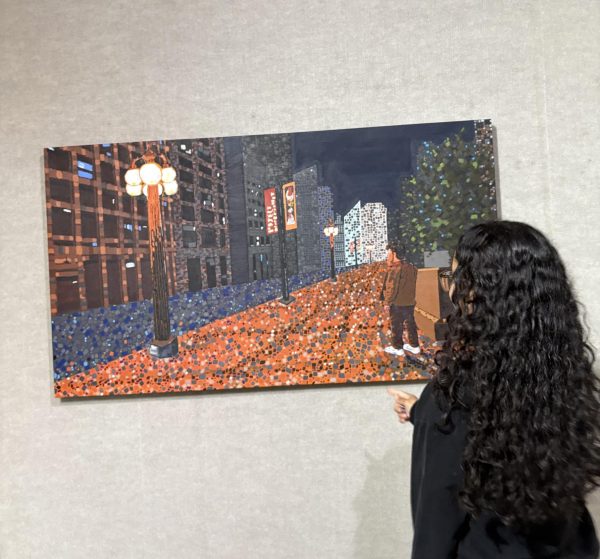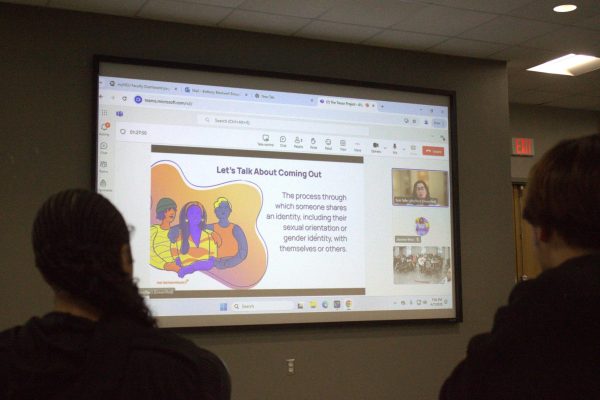“Trial Through Errors” asks the big questions
“Trial Through Errors: A Legislative Theatre Devised Piece” featured a limited cast of four students and minimal props, including six chairs, two tables and very few costume props, such as jackets and blankets. The performance was very art deco, in the same way that you might imagine a game of charades on stage would perform like.
There’s a nice breeze flowing in the square between Magale Recital Hall and A.A. Frederick’s Fine Arts Center. Students, faculty and parents alike have gathered on benches and blankets, all facing the Outside Greek Stage for the last showing of this semester’s first second stage performance, a new piece called “Trial Through Errors: A Legislative Theatre Devised Piece.”
Second stage performances are entirely directed, performed and operated by Creative and Performing Arts students. This performance was also written by the four cast members included, Paige Littleton, Joyous Celestine, Jalacia Alexander and Jackson Holoubek.
Directed by Mandy Barter, the play focused audience participation and drove audience members to question what they believe and what solutions would be better, between two proposed solutions.
Traditionally, Legislative Theatre is an improvisation performance. While I believe that “Trial Through Errors: A Legislative Theatre Devised Piece” would have benefitted from improvisation on the part of these talented students, it would have defeated the purpose of the second stage performance assignment. Much like a graduate thesis project, from my understanding, directing a performance acts as a final capstone grade for theater students with a directing concentration.
“Trial Through Errors: A Legislative Theatre Devised Piece,” as previously stated, featured a limited cast of four students and minimal props, including six chairs, two tables and very few costume props, such as jackets and blankets. The performance was very art deco, in the same way that you might imagine a game of charades on stage would perform like.
Each actor wrote about different situations that they, or anyone else, might find themselves in, each skit honing in on topics of depression, racism, ableism and fertility rights. While the solutions themselves weren’t entirely different, each scene followed the same formula.
Two of the actors performed the initial scene as a conflict without a resolution, and then two others offered solutions, reinserting themselves at a specific point in the initial scene, either as a Witness or as one of the pre-existing characters, likely the main character, or protagonist.
The solutions to three of the four problems were generally the same. The actors offered ideas of change to systemic issues. While the ideas were good and implemented well into the show, they didn’t offer fundamental change to the actual issues.
For example, one scene introduces a workplace complaint, where a character is requesting appropriate amenities to help them perform their job, due to a disability. The solutions to the conflict were either to offer seminars for workplace understanding or give the employee the proper amenities.
Overall, these solutions are good and work well for the character, but workplace seminars would still lead to this character having the needed utensils, and neither solution focuses on the broader spectrum of issues at hand.
The only conflict that was introduced that didn’t have the same solution proposed was one that had solutions proposed for two wildly different topics.
After a pregnant woman is being convinced by another pregnant woman that she should not give up her baby, regardless of the harm that it could cause her, her baby or her livelihood, the solutions proposed dealt with miscarriage and abortion. While the scene did focus on the Texas abortion bill that was passed late last year, the scene dealt with the topics like they were the same issue, rather than offering solutions to policing pregnant people’s bodies or ending the stigma against people who face miscarriages and to offer support.
Overall, the actors’ performances were all phenomenal, especially considering the lack of props and budgeting. Barter’s cast aims to ask questions that engage audiences and change things for the better.





















